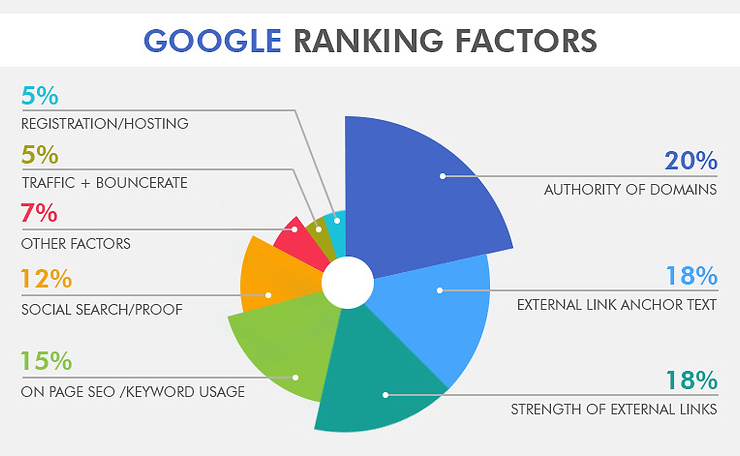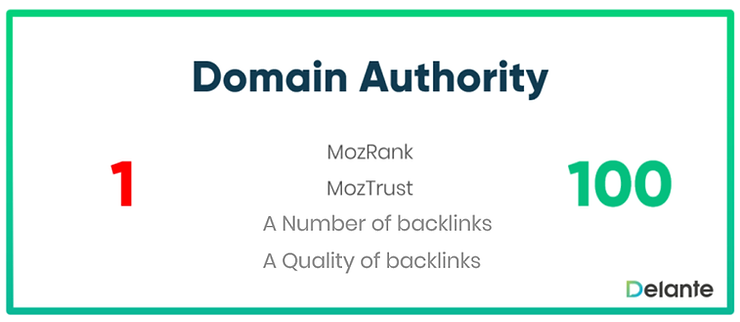What is authority in SEO?
In SEO (Search Engine Optimisation), authority refers to the perceived credibility or trustworthiness of a website or webpage in the eyes of search engines like Google.
There are various factors that contribute to a website’s authority, including:
- Backlinks: The quality and quantity of backlinks from other reputable websites can signal to search engines that your website is trustworthy and authoritative.
- Content quality: High-quality content that provides value to users can also help establish a website’s authority.
- Site age and history: Established websites with a long history of providing valuable content are generally considered to be more authoritative.
- Social signals: The popularity of a website on social media can also contribute to its perceived authority.
- Technical factors: A website’s technical performance, such as its loading speed and mobile responsiveness, can also influence its perceived authority.
Search engines use algorithms to evaluate these and other factors when determining a website’s authority, and websites with higher authority are more likely to rank well in search engine results pages (SERPs) for relevant queries.

Source: Momentum Digital
What is domain authority?
Domain Authority (DA) is a metric developed by Moz, which is used to estimate the authority or credibility of a website’s domain. It is based on a scale of 0 to 100, with higher scores indicating greater authority.
The Domain Authority score is calculated using various factors such as the quality and quantity of links pointing to a website, the website’s age, content quality, and technical performance.
Essentially, DA predicts how well a website will rank on search engines based on the strength of its backlink profile and other relevant factors.
It’s important to note that Domain Authority is a relative metric, meaning that it should be used to compare the authority of different websites within the same niche or industry, rather than as an absolute measure of a website’s overall authority.
Additionally, Domain Authority is just one of many factors that search engines use to rank websites, and a high DA score does not guarantee high rankings or traffic.
How is domain authority tracked?
Domain Authority is tracked using a combination of data from Moz’s web index, which includes link data, and machine learning models. Moz crawls the web and collects data on websites and links, which is then used to calculate Domain Authority scores for each website.
The Domain Authority score is updated regularly, usually on a monthly basis, as Moz’s index is updated. When the index is updated, Moz recalculates the DA score for each website based on the latest data.
To check the Domain Authority of a website, you can use Moz’s free Link Explorer tool or other similar tools available online. These tools typically allow you to enter a domain name or URL, and then provide you with a Domain Authority score and other relevant metrics such as the number of backlinks and referring domains.
It’s important to note that Domain Authority is just one of many metrics that can be used to evaluate a website’s overall authority and ranking potential, and should be used in conjunction with other metrics and factors.

Source: Delatne
What factors are influenced for the domain authority?
Domain Authority (DA) is influenced by a variety of factors, including:
- Quality and quantity of backlinks: The number and quality of backlinks to a website are among the most important factors that influence Domain Authority. Backlinks from authoritative websites that are relevant to your niche or industry can have a positive impact on your DA score.
- Content quality: Websites that consistently produce high-quality content that provides value to users are more likely to have a higher DA score. This is because search engines favour websites that provide high-quality, relevant content to their users.
- Website age and history: Established websites with a long history of providing valuable content are generally considered to be more authoritative. Newer websites may take some time to build up their authority and establish a reputation.
- Technical factors: The technical performance of a website, such as its loading speed, mobile responsiveness, and security, can also influence its Domain Authority. Websites that are fast, user-friendly, and secure are more likely to have a higher DA score.
- Social signals: The popularity of a website on social media can also contribute to its perceived authority. Social signals such as likes, shares, and comments can indicate to search engines that your website is valuable and relevant to users.
- Brand signals: The visibility and recognition of a brand can also influence its Domain Authority. Websites associated with well-known and respected brands are more likely to be seen as authoritative by search engines.











We have been working with Amax Marketing for the last few weeks and have already been impressed with the results we've seen.
As experts in outreach and digital PR, we knew we'd be in safe hands. We are looking forward to the coming months, and getting some fantastic results!